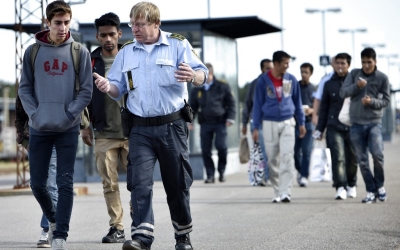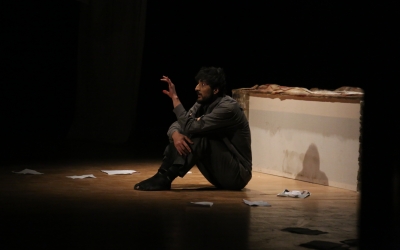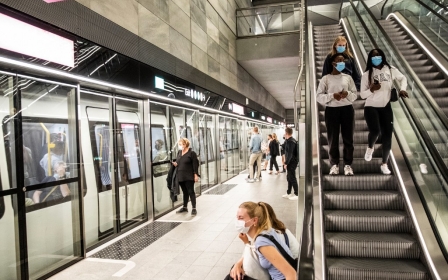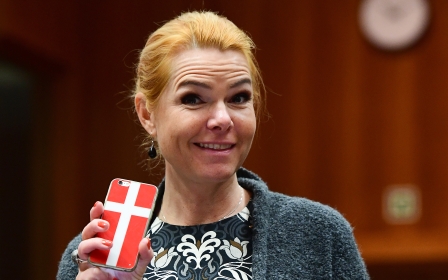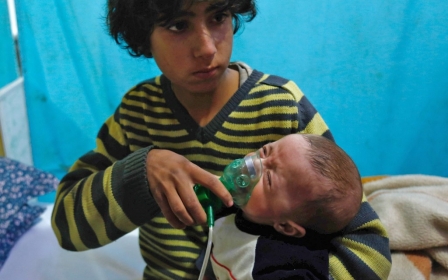Experts consulted by Denmark condemn plan to deport Syrian refugees
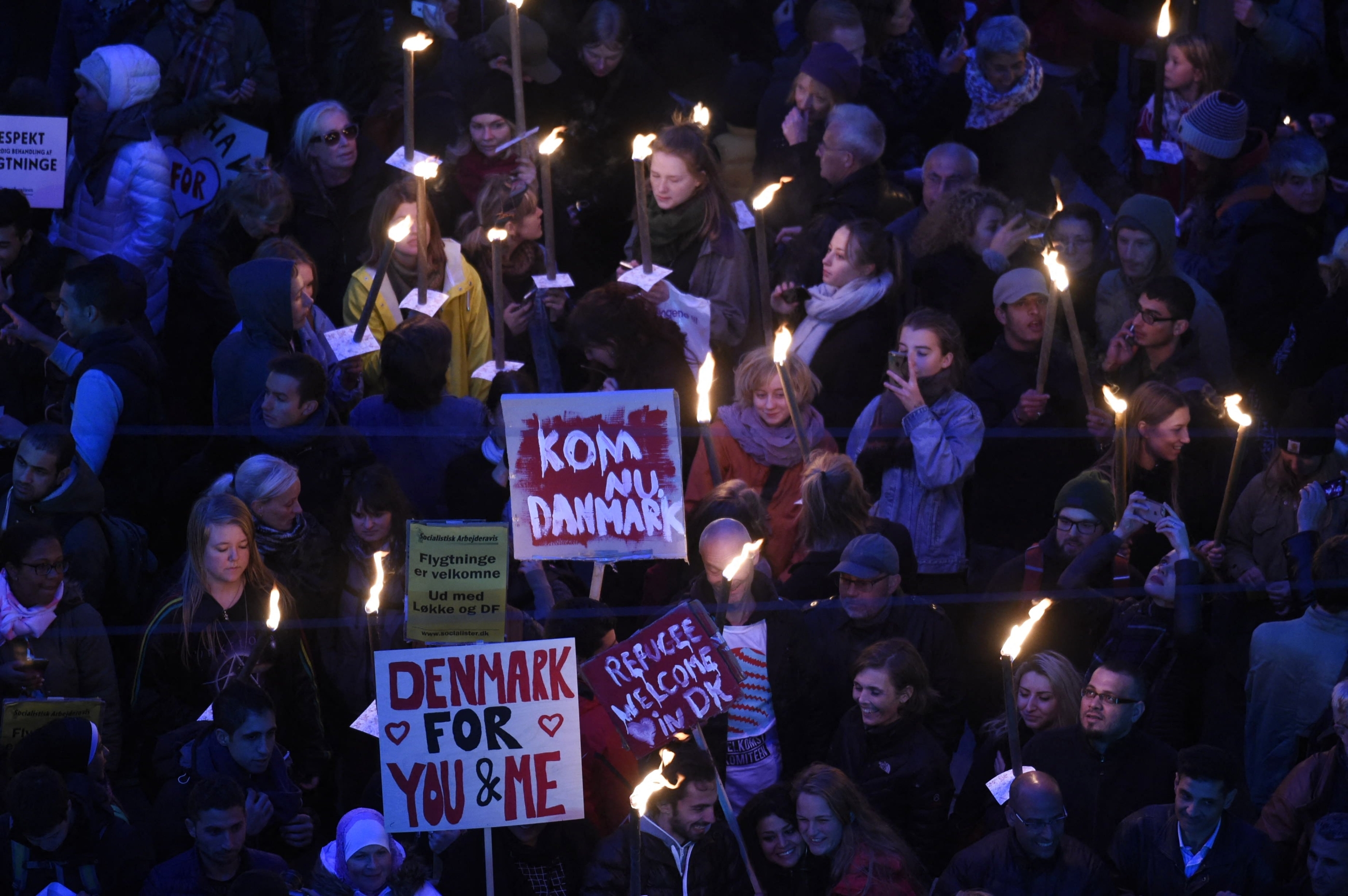
A group of experts who were consulted by the Danish government for a report that declared parts of Syria safe - allowing authorities to revoke residency permits for Syrians - criticised Denmark's controversial stance on Monday, saying that no Syrian refugee was safe enough to be forced to return.
Eight of the 12 experts consulted for the 2019 report wrote in a joint statement that their "expert opinion, background information and other advice to the Danish Immigration Service was underappreciated".
"We do not recognise our views in subsequent government conclusions or policies, and neither do we consider that Denmark's Syrian refugee policy fully reflects the real conditions on the ground," read the statement, published by Human Rights Watch.
'We believe that conditions do not presently exist anywhere in Syria for safe returns'
- Eight of the 12 experts consulted for 2019 report
Danish authorities reclassified Damascus as safe in the 2019 report. In 2021, this label was extended to Rif Damascus, the capital's governorate.
In doing so, Denmark opened the possibility for Syrian refugees to not have their residency permits renewed, which was the case for 94 of them in March.
New MEE newsletter: Jerusalem Dispatch
Sign up to get the latest insights and analysis on Israel-Palestine, alongside Turkey Unpacked and other MEE newsletters
"We are urging the Danish government to revise its conclusions on Damascus to better reflect the ongoing risks posed to potential returnees, and to amend its current refugee policies accordingly," read the experts' open letter.
"We believe that conditions do not presently exist anywhere in Syria for safe returns and any return must be voluntary, safe and dignified," they added, urging Denmark to return to the position outlined in a European Parliament resolution in March, which stated that Syria "is not a safe country to return to".
Residency revoked
Authorities have faced mounting criticism in recent weeks for the decision.
"No other country in Europe has adopted such a policy," Niels-Erik Hansen, a lawyer specialising in migration issues, told the AFP news agency.
The issue made global headlines in early April after one of Hansen's clients, a teenager soon to graduate from secondary school, pleaded with viewers on Danish television.
Speaking in fluent Danish, 19-year-old Aya Abu-Daher moved viewers as she asked, holding back tears, what she had "done wrong", according to AFP.
The young Syrian was recently told that her residence permit, which expired at the end of January, would not be renewed.
Like her, 189 Syrians have already had their residence permits revoked since the summer of 2020 after Copenhagen decided to re-examine the cases of around 500 Syrians from Damascus, under the control of Bashar al-Assad's regime.
The revocations were on the grounds that "the current situation in Damascus is no longer such as to justify a residence permit or the extension of a residence permit".
Some of the rejected applicants, who had originally been granted only a temporary permit, have been placed in a detention centre.
"Being in a return centre, you can't work nor study and you get food three times a day. Basically, they keep you there until you sign a paper saying that you'll return voluntarily to Syria," Hansen told AFP.
Under Danish immigration law, temporary residence permits are issued without an end date in cases of a "particularly serious situation in the country of origin characterised by arbitrary violence and attacks against civilians", but can be revoked once conditions are deemed to have improved.
Roughly 35,500 Syrians currently live in Denmark, more than half of whom arrived in 2015, according to Statistics Denmark.
'I won't back down'
The UN High Commissioner for Refugees (UNHCR) recently said it was “concerned” about Denmark's decision, though deportations are currently suspended because Syria and Denmark don’t have diplomatic relations.
“UNHCR does not consider that the recent improvements in security in parts of Syria to be sufficiently fundamental, stable or durable to justify ending international protection for any group of refugees," a spokesperson said in a recent press briefing.
But despite the backlash and negative media attention, the country appears to be sticking to its guns.
"The government's policy is working, and I won't back down, it won't happen," Social Democratic migration minister Mattias Tesfaye said after Aya Abu-Daher's plea was broadcast, AFP reported.
"Denmark has been open and honest from day one. We have made it clear to the Syrian refugees that their residence permit is temporary and that the permit can be revoked if the need for protection ceases to exist," Tesfaye told AFP recently.
Denmark set out in January its aim of having "zero asylum seekers". It offers special grants for voluntary returnees, according to AFP, which were accepted by 137 Syrians in 2020.
"Damascus may not have seen active conflict hostilities since May 2018," read the open statement, "but that does not mean that it has become safe for refugees to return to the Syrian capital."
"Many of the key drivers of displacement from Syria remain, as the majority of refugees fled, and continue to fear, the government’s security apparatus, arbitrary arrest and detention, torture, military conscription, and harassment and discrimination."
"Danish policy could lead a worrying trend in European refugee policy towards the revocation of residency and other restrictions," it added.
Middle East Eye delivers independent and unrivalled coverage and analysis of the Middle East, North Africa and beyond. To learn more about republishing this content and the associated fees, please fill out this form. More about MEE can be found here.


